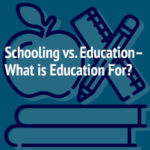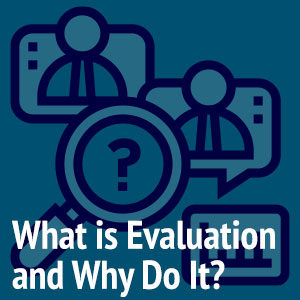
In our previous article, “Schooling vs. Education – What is Education For?” we discussed the difference between schooling and education, examined the emergence of public education in the U.S, and briefly reviewed an article that said that the lingering 19th and early 20th “factory model” of education is out of date and needs to be replaced. Here, we’d like to briefly explore the underlying question: “What is education’s purpose?”
In classical Greece, Plato believed that a fundamental task of education is to help students to value reason and to become reasonable people (i.e., people guided by reason.) He envisioned a segregated education in which different groups of students would receive different sorts of education, depending on their abilities, interests, and social stations. Plato’s student Aristotle thought that the highest aim of education is to foster good judgment or wisdom. Aristotle was more optimistic than Plato about the ability of the typical student to achieve judgement and wisdom. Centuries later, writing in the period leading up to the French Revolution, Jean-Jacques Rousseau (1712–78) said that formal education, like society itself, is inevitably corrupting, and argued that a genuine education should enable the “natural” and “free” development of children – a view that eventually led to the modern movement known as “open education.” Rousseau’s views of education, although based in an idea of the romanticized innocence of youth, informed John Dewey’s later progressive movement in education during the early 20th century. Dewey believed that education should be based largely on experience (later formulated as “experiential education”) and that it should lead to students’ “growth” (a somewhat ill-defined and indeterminate concept.) Dewey further believed in the central importance of education for the health of democratic social and political institutions. Over the centuries, philosophers have held a variety of views about the purposes of education. Harvey Siegel catalogues the following list:
- the cultivation of curiosity and the disposition to inquire;
- the fostering of creativity;
- the production of knowledge and of knowledgeable students;
- the enhancement of understanding;
- the promotion of moral thinking, feeling, and action;
- the enlargement of the imagination;
- the fostering of growth, development, and self-realization;
- the fulfillment of potential;
- the cultivation of “liberally educated” persons;
- the overcoming of provincialism and close-mindedness;
- the development of sound judgment;
- the cultivation of docility and obedience to authority;
- the fostering of autonomy;
- the maximization of freedom, happiness, or self-esteem;
- the development of care, concern, and related attitudes and dispositions;
- the fostering of feelings of community, social solidarity, citizenship, and civic-mindedness;
- the production of good citizens;
- the “civilizing” of students;
- the protection of students from the deleterious effects of civilization;
- the development of piety, religious faith, and spiritual fulfillment;
- the fostering of ideological purity;
- the cultivation of political awareness and action;
- the integration or balancing of the needs and interests of the individual student and the larger society; and
- the fostering of skills and dispositions constitutive of rationality or critical thinking.
Needless to say, the extent and diversity of this list suggests that the purposes of education are manifold, and that in different historical periods, and under various historical circumstances, people have looked to education to accomplish a wide variety of ends – from the instillment of reason, to the tasks of self-development and vocational/career preparation. The sometimes incompatible goals of education may inform some of the challenges – both philosophical and practical – that U.S. schools have experienced during the last few centuries, and that persist today. (See “Confusion Over Purpose of U.S. Education System” Lauren Camera, August 29, 2016, U.S. News and World Report.)
Resources:
Harvey Siegel, “Philosophy of education,” Encyclopedia Britannica
“What is Education for?” Video. School of Life
“Education in Society” Video. Crash Course
“What Is the Purpose of Education?” Alan Singer, Huffpost, February 8, 2016
“Purpose of School” Steven Stemler, Wesleyan University
A List of Quotes about the Purposes of Education
“Confusion Over Purpose of U.S. Education System” Lauren Camera, August 29, 2016 U.S. News and World Report
“What Is Education For?” Danielle Allen, Boston Review, May 9, 2016





